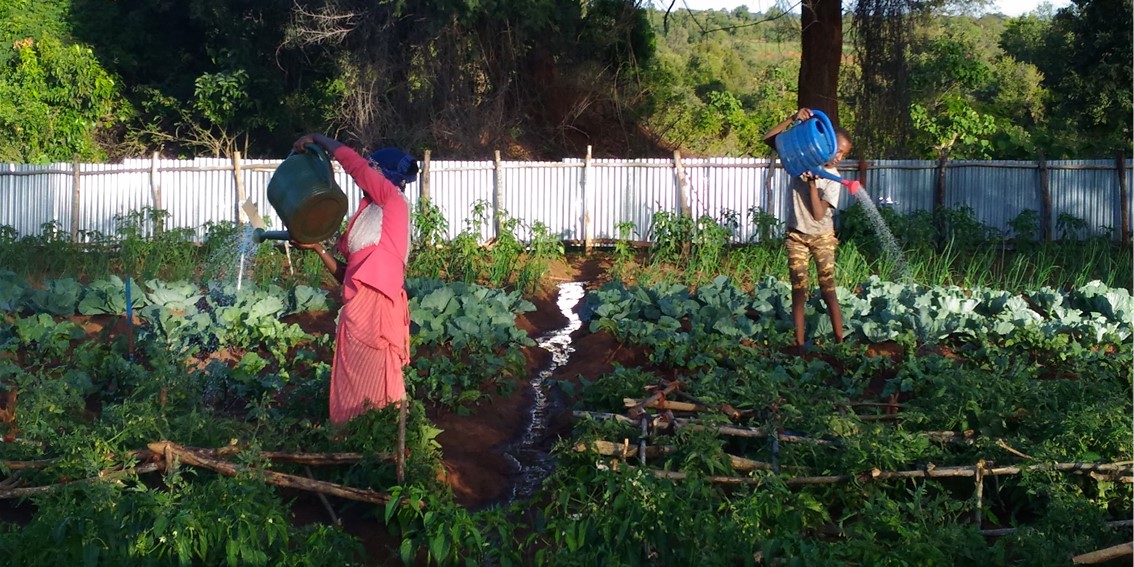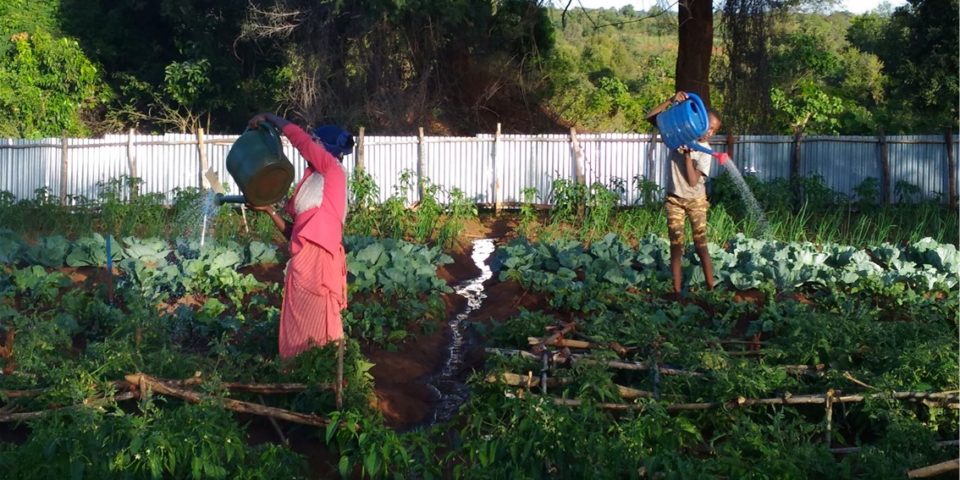
In Keraro (Ethiopia), 45 community members have formed a cooperative to practice small scale irrigation on three hectare communal land using a solar energy driven system. For farmers, it was the first time that they were engaged in producing at bigger scale and different vegetables than the traditional maize. After the first cropping season already, they have witnessed that the newly introduced vegetables generate more income than their traditional crop. Combined with some support on increasing their access to market and capacity building on modern farming techniques, they generated seven times more income than if they had grown maize on the same plot of land. They are now able to produce eight new types of vegetable that are hardly grown in the area but that have a market potential: tomato, onion, pepper, cabbage, lettuce, beetroot, sweet potato and carrot.
After visiting another well-established cooperative of small-scale irrigation vegetable producers in Zipway), the Keraro cooperative members got ideas on how to further improve the way they work: they started developing a business plan, re-arranged the work division more effectively, and restructured the cooperative with the help of the Woreda cooperative office. New cooperative members also joined the group.
Introducing agriculture to these pastoralist communities has helped diversify their sources of income (and nutrition) and built their resilience to the frequent drought. Some good land and water management practices have also been replicated at household level.

